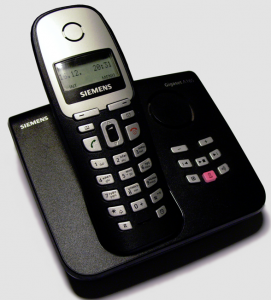Compliments of :
Body: Accidental Falls
Spirit: Caregiving
Fall Prevention Series – Part 3 – What to do After a Fall

The previous two editions of our ‘Fall Prevention’ series addressed the common environmental, biological, and lifestyle elements that contribute to the risk of falls. Even with the best prevention strategies, falls can still occur, and it is important for us to know just what to do when a fall happens.
After a fall – If you can get up – how to get to a safe and comfortable position:
- Do not try to stand up if you are injured and/or feeling dizzy.
- If anyone is close enough to assist you, call out for their help.
- Take a moment to catch your breath, get your bearings, and recover if you were feeling light headed.
- If no one else is around to assist, and you are able to, gently roll to your side – leading first with your head, then shoulders, torso and legs.
- Rest if necessary.
- Slowly get up on all fours.
- Once you have your balance, gently crawl to a sturdy piece of furniture such as a sofa or heavy chair.
- Place your arms on the piece of furniture and grip firmly.
- While steadying yourself with your arms on the furniture, place your strongest foot flat on the floor, and with the other leg in the bent position, slowly lift yourself onto the chair or sofa.
- Once you are able to move, and even if you feel fine, get to a phone and call a caregiver or family member. It is important to make sure that someone is with you and you are ultimately checked out by a health practitioner for any injuries you may not be aware of.
After a fall – If you cannot get up – how to get help:
- Take a moment to catch your breath and re-establish your bearings.
- A few slow and deep breaths can help to restore your sense of calm.
Remember – your objective is to get help any way you can.
- If you have an emergency alert button on your person – use it now!
- If you have a phone nearby, slowly drag yourself to the phone and call 911!
- If you cannot use an emergency alert button or a phone, call out for assistance as loudly as you can.
- Make noise to draw attention to yourself – use a cane or mobility aid or any object you can get a hold of to bang on the floor, wall, window or any surface that will make a noise.
- If you are able to, drag yourself to where you can get a pillow for your head, and a blanket or clothing to drape over yourself to keep warm.
- Do NOT try to get up on your own if you are injured, dizzy, or too weak. Another fall will just make the situation worse.
- Continue to make noise and call out for assistance.
After a fall – If you witness a fall – how to help the person get to a comfortable position or secure appropriate medical assistance:
- If the person is unconscious or appears to be injured – call 911!
- If the person is conscious, check for injuries while you attempt to reassure them and encourage them to take a few slow breaths and remain as calm as they can.
- Provide any first-aid you can while you are waiting for the medical assistance.
- If you believe the person can move, help them shift to their side (see above) and when they are ready, help them get on all fours.
- Bring a sturdy chair to them and help them grip the chair with their arms.
- Holding firmly onto their hips, get the person to place their strongest foot flat on the floor, and while they bend their other leg – guide them gently up, continue to hold their hips firmly while you turn them to be able to sit on the chair.
- Help them catch their breath and ensure they have good balance on the chair.
- Even if they appear fine, help them arrange for an assessment by a health practitioner.
In summary, practice makes perfect! Eliminate as many environmental and lifestyle risks, and keep active. While in the presence of someone you trust, practice rolling onto your side, crawling, and pulling yourself up in the sitting position. Your muscle memory may just pay off when you need it the most!
Rhonda Latreille, MBA, CPCA
Founder & CEO
Age-Friendly Business
Accidental Falls
According to the World Health Organization, falls are the second leading cause of accidental or unintentional injury deaths worldwide, and persons over 65 years of age suffer the greatest number of fatal falls.
Caregiving
“To care for those who once cared for us is one of the highest honors.”
Tia Walker